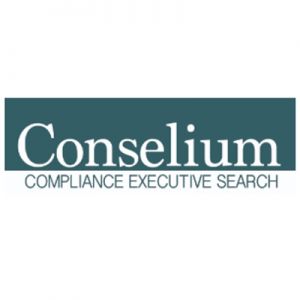Qualifications and Skills Required to Become a Compliance DirectorPosted by Conselium Compliance Search on September 28th, 2023 Original Source: https://theomnibuzz.com/qualifications-and-skills-required-to-become-a-compliance-director/ In the ever-evolving landscape of corporate governance and regulatory compliance, the role of a Compliance Director has gained paramount importance. These professionals play a critical role in ensuring that organizations adhere to laws and regulations, mitigate risks, and uphold ethical standards. To embark on a successful journey toward becoming a Compliance Director, individuals must acquire specific qualifications and skills. In this comprehensive guide provided by Conselium Compliance Search, we will delve into the essential requirements and attributes that aspiring Compliance Directors should possess. Educational Qualifications:Bachelor's Degree:A solid educational foundation often begins with a bachelor's degree in a relevant field such as business, finance, law, or a related discipline. This provides a fundamental understanding of the business world and its regulatory frameworks. Advanced Degree:Many Compliance Directors hold advanced degrees, such as a Master's in Business Administration (MBA), Juris Doctor (JD), or Master's in Compliance and Ethics. These degrees can provide a deeper understanding of compliance principles and legal aspects. Relevant Certifications:Earning certifications related to compliance can enhance your qualifications. Consider pursuing certifications like Certified Compliance and Ethics Professional (CCEP), Certified Information Systems Auditor (CISA), or Certified Regulatory Compliance Manager (CRCM). Professional Experience:Extensive Industry Experience:To excel in the role of a Compliance Director, you typically need several years of experience in your chosen industry. This helps you understand the specific regulatory challenges and nuances relevant to your field. Compliance Background:Prior experience in compliance roles, such as Compliance Analyst, Compliance Manager, or Compliance Officer, is highly beneficial. It allows you to build a solid foundation in compliance practices and procedures. Leadership and Management Experience:Developing leadership and management skills through positions like team lead or manager is crucial. Compliance Directors are often responsible for leading compliance teams and overseeing compliance programs. Regulatory Knowledge:Deep Understanding of Regulations:Compliance Directors must possess a profound knowledge of relevant regulations, industry-specific laws, and international standards. Staying updated on regulatory changes is paramount. Industry Expertise:In addition to general regulatory knowledge, expertise in the specific industry in which you work is essential. This includes understanding industry-specific regulations and compliance challenges. Analytical and Problem-Solving Skills:Analytical Acumen:Compliance Directors must have strong analytical skills to assess complex compliance issues, identify gaps, and develop effective solutions. Problem-Solving Skills: The ability to think critically and solve problems is crucial. Compliance Directors often face intricate compliance dilemmas that require creative and practical solutions. Communication and Interpersonal Skills:Excellent Communication:Effective communication is vital for Compliance Directors. They need to convey compliance requirements and expectations clearly to various stakeholders within the organization. Relationship Building:Building strong relationships with internal and external stakeholders, including regulatory agencies, is essential. These relationships can help navigate compliance challenges. Ethical and Integrity:Unwavering Ethical Standards:Compliance Directors must demonstrate unwavering ethics and integrity in their decision-making and actions. They are responsible for upholding the highest ethical standards within the organization. Leadership and Management Skills:Leadership Abilities:As leaders of compliance teams, Compliance Directors must inspire and guide their teams toward compliance excellence. Strategic Thinking:They should possess strategic thinking skills to develop and implement compliance strategies that align with the organization's goals. Change Management:Change is constant in the compliance field. The ability to manage and adapt to changes in regulations or organizational structures is crucial. Risk Management Expertise:Risk Assessment: Compliance Directors should be adept at assessing and managing risks associated with non-compliance. This includes identifying potential risks and implementing mitigation strategies. Technological Proficiency:Data Analytics:With the growing importance of data in compliance, a strong understanding of data analytics tools and techniques is advantageous. Compliance Software:Familiarity with compliance software and technology solutions can streamline compliance processes and reporting. Regulatory Reporting and Documentation:Accurate Documentation:Compliance Directors must maintain thorough and accurate records of compliance activities and issues for audit purposes. Reporting Expertise:They should be skilled in preparing comprehensive reports and presentations for senior management and regulatory authorities. Multinational and Cross-Cultural Competence:Global Compliance Knowledge:For organizations with international operations, understanding global compliance requirements and cross-cultural considerations is essential. Cross-Cultural Communication:Ability to work effectively with diverse teams and navigate cross-cultural communication challenges is crucial. Continuous Learning and Adaptability:Lifelong Learning:The regulatory landscape evolves, and Compliance Directors must commit to continuous learning to stay updated on emerging compliance trends. Adaptability:Being adaptable and open to change is critical as regulations and business environments shift. Project Management Skills:Project Planning:Compliance Directors often lead compliance projects. Proficiency in project planning, execution, and monitoring is valuable. Legal Knowledge:Legal Acumen:While not mandatory, having a legal background or collaborating closely with legal counsel can be advantageous for understanding complex legal aspects of compliance. Industry Networking:Joining Professional Associations:Active participation in industry-specific compliance associations and networks can facilitate knowledge sharing and professional growth. Crisis Management Skills:Crisis Preparedness:Compliance Directors should be prepared to handle compliance crises, which may include regulatory investigations or enforcement actions. Crisis Communication:Effective crisis communication is vital in maintaining trust and minimizing reputational damage during compliance crises. Training and Development:Training Programs:Investing in compliance training programs and workshops can help build and sharpen essential skills. Mentorship:Seek mentorship from experienced Compliance Directors or compliance professionals to gain insights and guidance. Conclusion:Becoming a Compliance Director is a journey that requires a blend of education, experience, skills, and personal attributes. These professionals play a pivotal role in safeguarding organizations' integrity and ensuring adherence to laws and regulations. By acquiring the qualifications and skills outlined in this guide, aspiring Compliance Directors can position themselves for success in this dynamic and vital field. Remember that continuous learning, adaptability, and a commitment to ethical standards are key to excelling in the world of compliance. Like it? Share it!More by this author |


